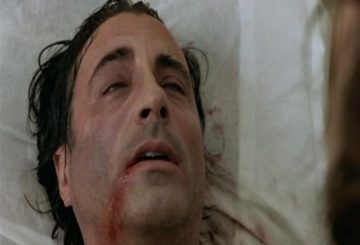“When Clement Greenberg developed his canonical account of American-style painting, he identified Jackson Pollock and the other Abstract Expressionists as heirs to early twentieth-century French modernism. China has very distinguished modernists, the great Wu Guangzhong, who was born in 1919, is still painting, but their concerns are too distant for them to play any role in [Karen] Smith’s history. Her avant-garde artists borrow from the West, but it is impossible to map their development onto the history of our artistic development. China really is another world. Mao, the most important political figure, is not easy for Westerners to understand, for though his responsibility for great disasters is acknowledged, he is much admired. Xu Bing, a victim of the Cultural Revolution, still expresses “a strong Maoist art philosophy that art should derive from routine life and should serve the people” […]
“Nine Lives focuses on artists who mostly remained in China, figures whose careers Smith has followed at a first hand. And so it deserves to be supplemented with her account of Ai Weiwei, who spent the 1980s in New York City. Living there “his response to his own personal experience was to deny China—his roots, his culture and the value system that had been imposed upon him”. But since he returned to Beijing in 1993, and, taking a major role there in serving to inspire Herzog & de Meuron’s planning for the 2008 Olympics, clearly now he is part of the story.
Smith describes Wang Guangyi’s appropriation of Maoist propaganda techniques in Great Criticism Series: Andy Warhol (2002); Geng Jianyi’s laughing faces; Fang Lijun’s images of “the sense of isolation”; Gu Dexin’s decaying red meat and spoiling ripe fruit; Li Shan’s homoerotic images of Mao; Zhang Xiaogang’s deadpan portraits; Xu Bing’s deconstructions of calligraphy; Zhang Peilli’s video showing public social dancing and Wang Jianwei’s, which displays emerging social conflicts. A great teller of this “history that has yet to be set in stone”, her narrative combines marvelous detailed interpretation with suggestive a historical perspective…”
Nine Lives: The Birth of Avant-Garde Art in New China by Karen Smith, and Ai WeiWei by Karen Smith, Hans Ulrich Obrisi, Bernard Fibicher reviewed by David Carrier, Art Critical


